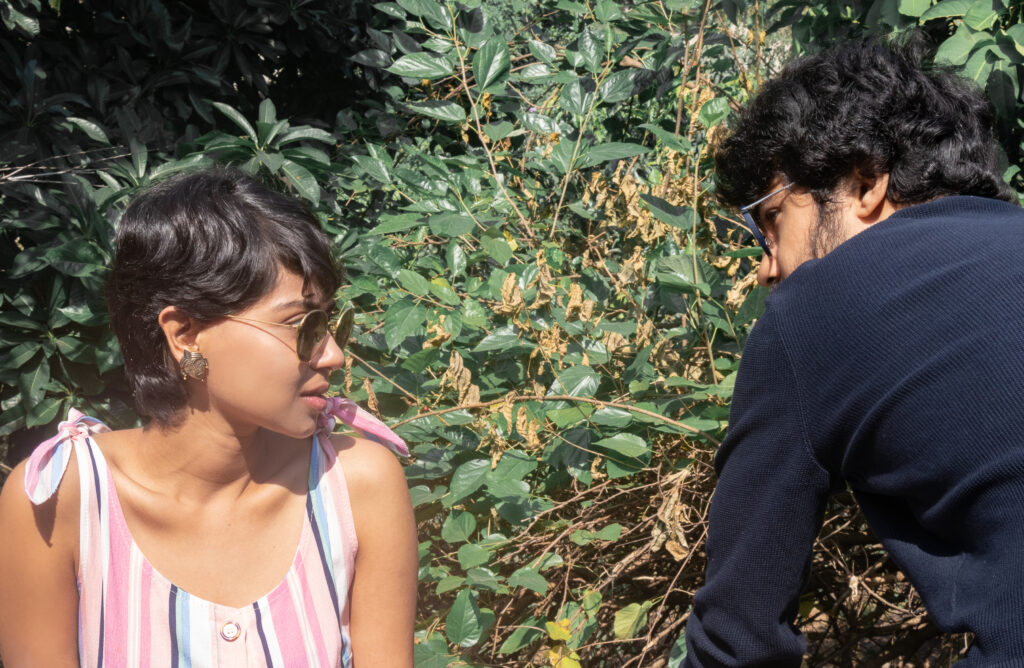Over the years a particular ‘genre’ of film making has taken root. Some very exciting films like Luis Buñuel’s Exterminating Angel (1962), Satyajit Ray’s Aranyer Din Ratri (1969), Asghar Farhadi’s About Elly (2009), Sanal Kumar Sasidharan’s Ozhivu Divasathe Kali (2015) and many, many more have created a format, which is very flexible to adapt and lends itself beautifully to newer concepts, ideas and insights. The structure, plot and treatment would vary from film-to-film. Almost always, the protagonists come from a milieu familiar to them and get assembled (or are cornered voluntarily or out of compulsion) in an isolated remote place like a resort. As the narrative progresses, the group realizes that most of those assembled are not ‘known to each other’ in the real sense. As a result, complexities, conflicts, resentments and tensions build up, taking the narrative to a saturation point. New relationships either get formed or old ones get renewed. Metaphorically speaking, there is a river that keeps flowing as its wont. And as it happens with rivers, they keep getting brutalized on their way. At the same time, they also get revitalized with renewed freshness. Weekdays & Weekends, directed by Sharad Raj, nicely connects with one such river.
Like any other social structure, the resort also has certain unwritten customs and codes in place for the motley group coming to it as guests. As a rule, almost no one would leave the place midway or refuse to participate in the proceedings. After all, you are said to be with friends and the others are well-known to you. Weekdays & Weekends focuses on a group of millennials, who seem to be lost, confused, and are in regular conflict with each other. They drift aimlessly and seem to love the tension they create for themselves. Some sort of fatigue has entered their individual lives, their communication seems to be strained. Loyalty is the first casualty in the group as they can hardly commit to anything. Sharing partners, a joint or drinking together comes easily enough for them. It is casually mentioned that they may even like to share lovers on rotation.
Subdued warm music introduces us to two young couples from the urban milieu. They decide to go to Khandala during the upcoming weekend. The group lands up in a resort run by a middle-aged lady, who has chosen to stay aloof on her own. She is almost a recluse lost in her own world of classic films, music, literature and the fine arts. Her daughter and husband live far away and the husband has zero interest in her. She seems to be desperately in need of a mode of communication and a break to return back to society. As the narrative unfolds, differences begin to surface in the younger group. Relationships are tested and they have to handle unexpected situations as they emerge. The turbulence disturbs the river, which was flowing quietly till then.
Raj avoids going for close ups. Even mid-close shots are rarely used. Some viewers may feel uncomfortable with such calculated distancing. But truth be told, it is an intrinsic part of the treatment chosen by the director to suit his preoccupations. A clear imaginary line is drawn separating the different world views with sequences relying mostly on Éric Rohmer-like dialogues. The main conversation point for the millennials is smoking joints, drinking, sex, loyalties, love etc. The ‘senior’ part of the story – relating to the resort owner – has abundant references to Françoise Truffaut, Jean-Luc Godard, Robert Bresson, jazz, literature etc. This coming together of the two worlds has some interesting consequences for all the characters.
The narrative ties all the threads nicely with an epilogue that takes the film to a new height. After all that talk about the French, Italian and German masters, the film finally finds its roots and resonates warmly with the Indian master, Ritwick Ghatak – an almost oblique reference to Meghe Dhaka Tara (1960) is delightful. It looks like Raj is making such surprise endings a part and parcel of his filmmaking. His earlier film, Ek Betuke Aadmi Ki Afrah Raatein (2019), has a surprise ending as well when the orphan child appears unexpectedly at the end. The protagonist could have easily abandoned it. But he takes a moral stand and adopts the child. In a way, something similar also happens here. After all the tangled relationships and misplaced priorities, one couple finally decides in favor of life, one that is yet to be born.
I’m not sure whether someone has already named the genre properly by now. I feel we can call such films ‘resort movies’. So, welcome to another resort film aptly titled Weekdays & Weekends.
Note: Weekdays & Weekends is now available to view worldwide on the T-VOD platforms of Apple TV (iTunes) and Google Play.
Hindi, English, Drama, Color


